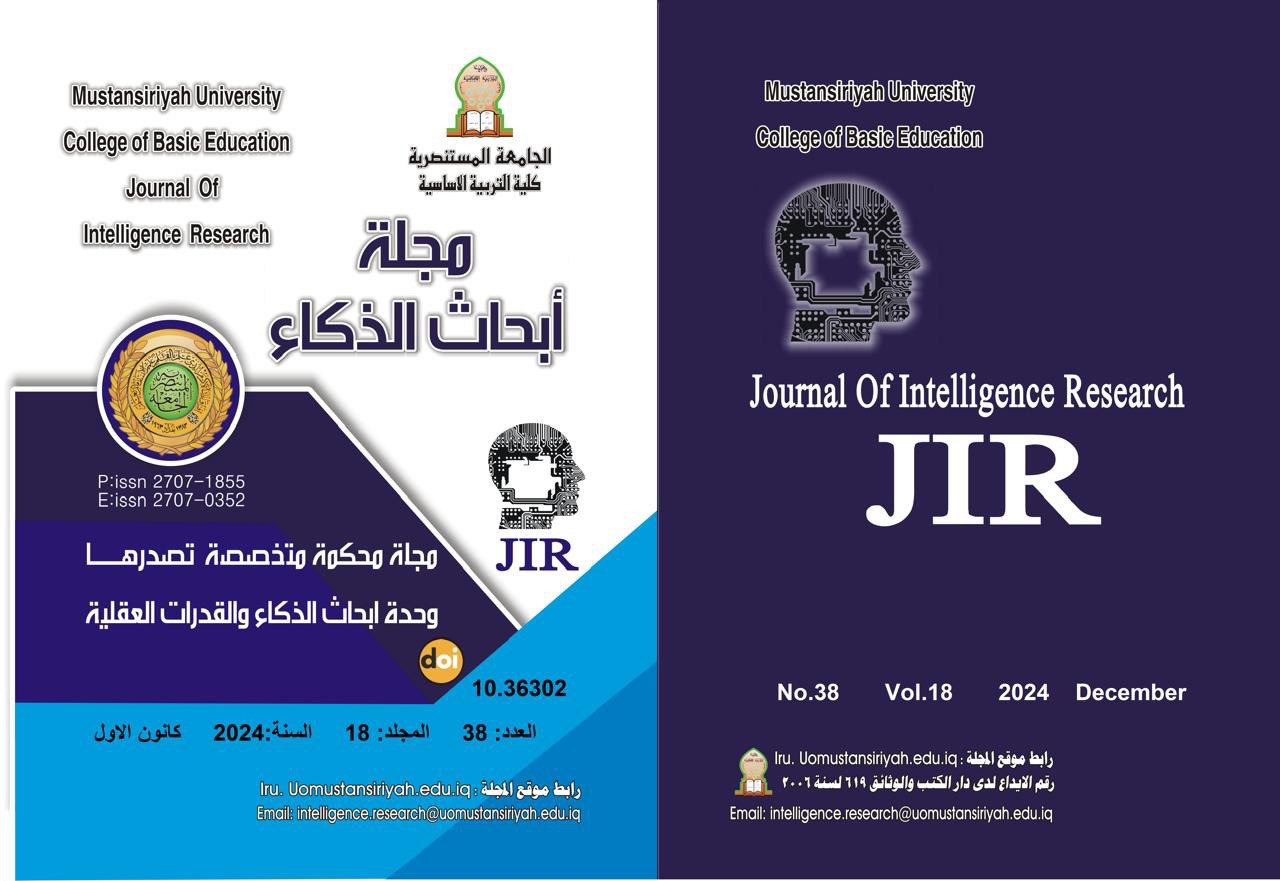Cognitive flexibility among kindergarten students
Keywords:
Cognitive flexibility, Kindergarten students, Split-halfAbstract
bstract of the research: The current research aims to identify cognitive flexibility among female students in the Kindergarten Department. The current research was limited to a sample of female students in the Kindergarten Department at the College of Basic Education for the academic year (2022-2021), numbering (100) students. The sample was selected using a simple random method. To achieve the research objectives, the researcher adopted the (Abdul Wahab, 2011) Cognitive Flexibility Scale for University Students. The scale consists of (30) paragraphs formulated in the form of positive paragraphs. The researcher verified the apparent validity of the cognitive flexibility scale and calculated its stability using the method: the half-split, as the correlation coefficient reached (0.89) and the retest method, as the correlation coefficient reached (0.90). The research data were processed using statistical methods that are compatible with the nature and objectives of the current research. Among these methods are: Pearson's correlation coefficient, the t-test for two independent samples, and the t-test for one sample. The researcher concluded that female students in the Kindergarten Department They have cognitive flexibility, but in a different way, as a result of the variation in personality dimensions, including cognitive flexibility. Cognitive flexibility at the academic level was clear in the third stage, and in light of the results of the current research, a number of recommendations and proposals were reached. Keywords: cognitive flexibility, kindergarten students.


